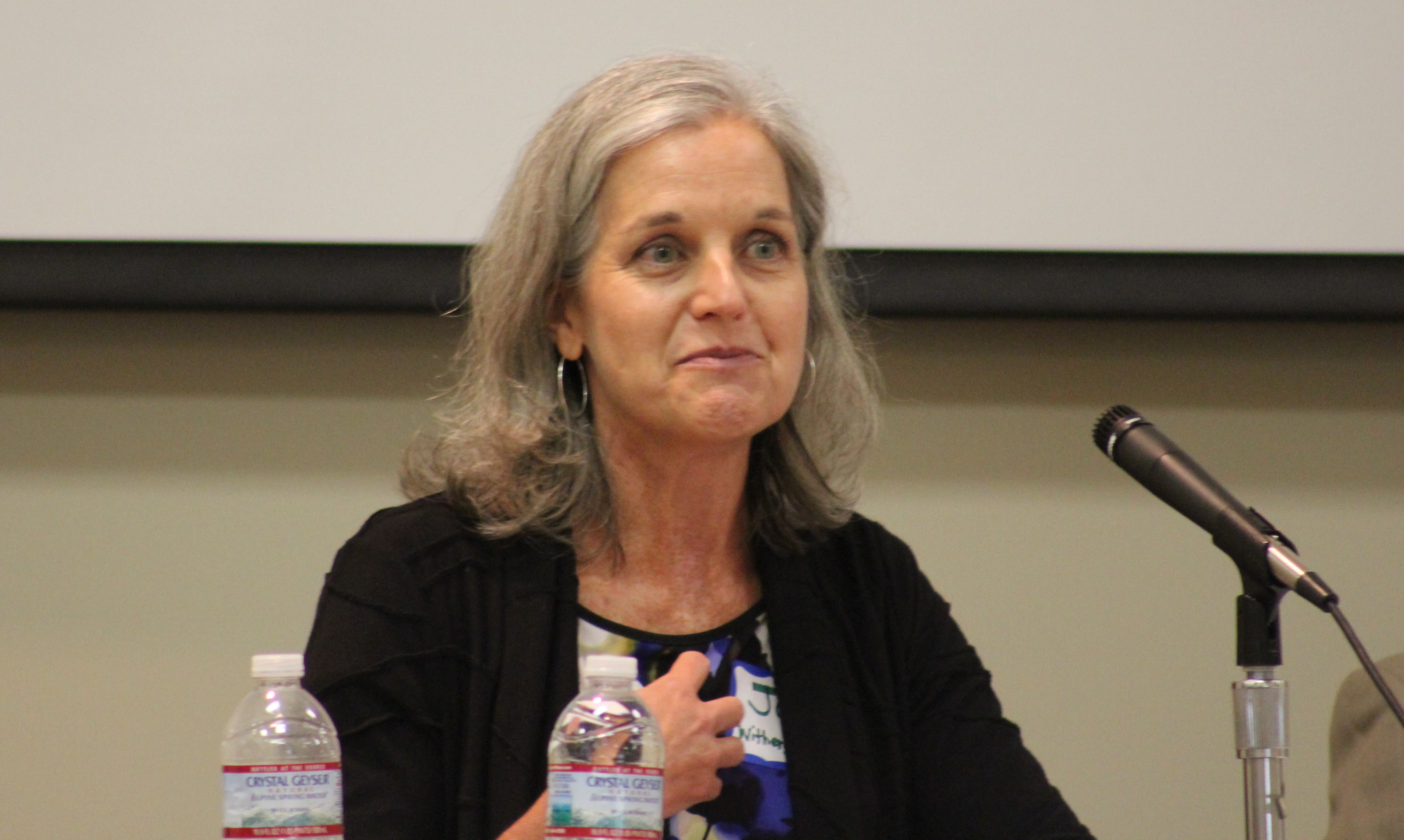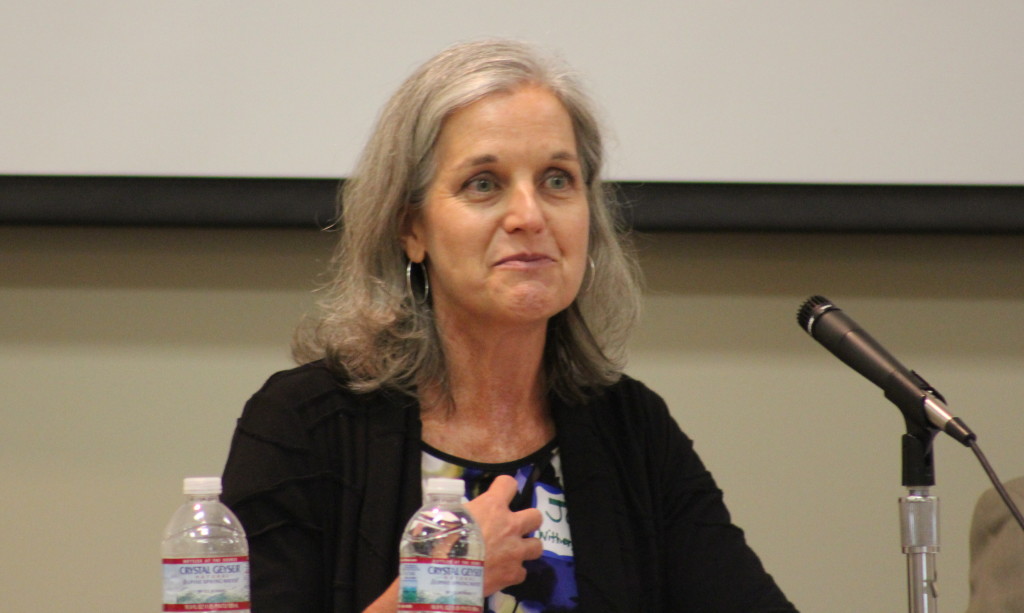
By Ariel Worthy
The Birmingham Times

How necessary are discussions about race relations in Birmingham?
The Junior League of Birmingham held a community roundtable on the issue last week with four panelists with diverse backgrounds.
Panelists were Joan Witherspoon-Norris, director of social justice at the YWCA; Lyord Watson, a preacher and philanthropist; Marquita Furness Davis, executive director for the Jefferson County Committee for Economic Development (JCCEO), and Hill Carmichael, the director of Urban Ministry.
Moderator Crystal Maxena asked the first question in a room filled with people of all races: Do we need to have conversations about race in Birmingham?
“Yes,” Witherspoon-Norris said simply. “So many of us are emotionally charged about race. Racism is so insidious that sometimes it’s hard to know what it is.”
Witherspoon-Norris said she has a passion about issues of racism, as well as issues like predatory lending. The two often coincide, she said.
“There are so many indicators that racism is alive and well,” Witherspoon-Norris said. “The systems that run our society – banking, predatory lending, education, criminal justice – every indicator says that racism is thriving. If we want to fix that so that people have a fair shot, regardless of that race, we definitely need to talk about it.”
Carmichael agreed with Norris, but added that white privilege has to be acknowledged in order to move forward, and that whites must recognize that “white people in this country hold a place of privilege and power.”
“I do not say that to illicit guilt,” Carmichael said. “White guilt breeds paralysis, but conviction leads to something totally different.”
Carmichael said after the high profile shootings of Alton Sterling, Philando Castile and the five Dallas police officers last month his staff at Urban Ministry was asked three questions: how does race and racism impact the work they do at Urban Ministry, what is your definition of white privilege, and what can you do?
Carmichael, who is white, said a black coworker put the issue in perspective.
“She said, ‘I want you know that you and I have a conversation, I oftentimes leave it and have a very different conversation with my black coworkers,’” he recalled.
That honesty and transparency, he said is worth a lot to him as a privileged white man.
Maxene then asked Davis, who was the first black female to be state finance director, what has not changed in regards to race.
“Most of the time I was the only person of color, and the only female sitting in a room full of white, old men in Montgomery,” Davis said. “So what hasn’t changed is our governing structure in Montgomery.”
Davis pointed out that many who have worked with her at the state capitol have been given more corporate and nonprofit work than she has.
“When you have led the $19 billion budget, but people still look at you like, ‘Oh, isn’t that sweet,’ that’s a really interesting place to be,” Davis said. “I don’t know if it’s race or gender, but I see it as some kind of ‘ism.’”




